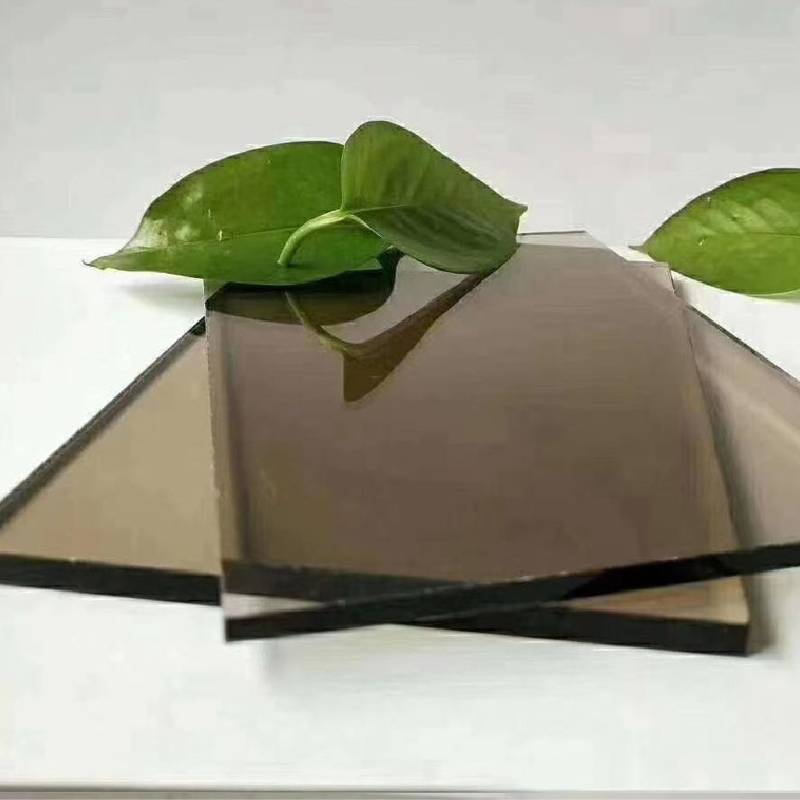The Versatility of Float Glass for Fusing
Float glass, a type of glass produced by floating molten glass on top of molten tin, has transformed the world of architecture, art, and design. Its unique manufacturing process results in flat glass that is clear, smooth, and free from distortions, making it an ideal choice for various applications, including fusing. Fusing is an artistic technique in which pieces of glass are joined together through heating, creating stunning and unique glass art. In this article, we will explore the characteristics of float glass that make it suitable for fusing and its applications in various artistic endeavors.
Properties of Float Glass
Float glass is characterized by its uniform thickness, high level of transparency, and excellent surface finish. These qualities are crucial for fusing, as the integrity of the glass during the heating process determines the final outcome of the artwork. The clarity of float glass ensures that the colors and patterns created during fusing are vibrant and well-defined. Additionally, the smooth surface allows for better adhesion between different glass pieces, resulting in seamless transitions and intricate designs.
Another important property of float glass is its compatibility with various types of glass in the fusing process. Artists often mix different glass types to achieve specific colors, textures, and effects. Float glass can be fused with other compatible glass types, such as colored and patterned glass, giving artists endless possibilities to explore their creativity.
The Fusing Process
Fusing involves heating glass pieces in a kiln until they soften and adhere together. The precise temperature required for fusing float glass typically ranges between 1400°F and 1600°F (760°C to 870°C). At these temperatures, the glass does not fully melt but instead becomes pliable enough to bond with other glass pieces. This process allows artists to create layered designs, incorporate textures, and achieve complex shapes, all while retaining the transparency and clarity that float glass is known for.
float glass for fusing
Artists often employ different techniques during the fusing process, including tack fusing, where pieces are joined together at lower temperatures to preserve their shapes and textures, and full fusing, where the glass pieces fully melt together to create a single, cohesive piece. The flexibility of float glass in these techniques makes it a favorite among glass artists.
Applications in Art and Design
The versatility of float glass has led to its widespread use in various artistic applications. Many artists create decorative items such as bowls, plates, and panel art by fusing float glass. The clarity and smoothness of the surface allow for intricate designs to be viewed from different angles, enhancing the visual experience.
In addition to standalone art pieces, float glass is often used in architectural applications. Glass facades, walls, and installations benefit from the properties of float glass, providing both aesthetic appeal and functionality. Its transparency allows natural light to filter through while maintaining an open and airy feel within a space. When incorporated into architectural designs, fused float glass pieces create stunning visual elements that can define a building's character and ambiance.
Conclusion
Float glass has become a staple material in the world of glass fusing due to its unique properties and versatility. Its clarity, smooth finish, and compatibility with other glass types make it an ideal choice for artists looking to explore their creativity. The fusing process opens up a world of possibilities, allowing artists to create intricate designs and stunning artworks that captivate viewers. Whether used in decorative art pieces or architectural applications, float glass continues to inspire innovation and creativity in the realm of glass art. As artists and designers push the boundaries of what is possible with this material, the future of float glass for fusing looks bright and promising.
 Afrikaans
Afrikaans  Albanian
Albanian  Amharic
Amharic  Arabic
Arabic  Armenian
Armenian  Azerbaijani
Azerbaijani  Basque
Basque  Belarusian
Belarusian  Bengali
Bengali  Bosnian
Bosnian  Bulgarian
Bulgarian  Catalan
Catalan  Cebuano
Cebuano  Corsican
Corsican  Croatian
Croatian  Czech
Czech  Danish
Danish  Dutch
Dutch  English
English  Esperanto
Esperanto  Estonian
Estonian  Finnish
Finnish  French
French  Frisian
Frisian  Galician
Galician  Georgian
Georgian  German
German  Greek
Greek  Gujarati
Gujarati  Haitian Creole
Haitian Creole  hausa
hausa  hawaiian
hawaiian  Hebrew
Hebrew  Hindi
Hindi  Miao
Miao  Hungarian
Hungarian  Icelandic
Icelandic  igbo
igbo  Indonesian
Indonesian  irish
irish  Italian
Italian  Japanese
Japanese  Javanese
Javanese  Kannada
Kannada  kazakh
kazakh  Khmer
Khmer  Rwandese
Rwandese  Korean
Korean  Kurdish
Kurdish  Kyrgyz
Kyrgyz  Lao
Lao  Latin
Latin  Latvian
Latvian  Lithuanian
Lithuanian  Luxembourgish
Luxembourgish  Macedonian
Macedonian  Malgashi
Malgashi  Malay
Malay  Malayalam
Malayalam  Maltese
Maltese  Maori
Maori  Marathi
Marathi  Mongolian
Mongolian  Myanmar
Myanmar  Nepali
Nepali  Norwegian
Norwegian  Norwegian
Norwegian  Occitan
Occitan  Pashto
Pashto  Persian
Persian  Polish
Polish  Portuguese
Portuguese  Punjabi
Punjabi  Romanian
Romanian  Russian
Russian  Samoan
Samoan  Scottish Gaelic
Scottish Gaelic  Serbian
Serbian  Sesotho
Sesotho  Shona
Shona  Sindhi
Sindhi  Sinhala
Sinhala  Slovak
Slovak  Slovenian
Slovenian  Somali
Somali  Spanish
Spanish  Sundanese
Sundanese  Swahili
Swahili  Swedish
Swedish  Tagalog
Tagalog  Tajik
Tajik  Tamil
Tamil  Tatar
Tatar  Telugu
Telugu  Thai
Thai  Turkish
Turkish  Turkmen
Turkmen  Ukrainian
Ukrainian  Urdu
Urdu  Uighur
Uighur  Uzbek
Uzbek  Vietnamese
Vietnamese  Welsh
Welsh  Bantu
Bantu  Yiddish
Yiddish  Yoruba
Yoruba  Zulu
Zulu 

